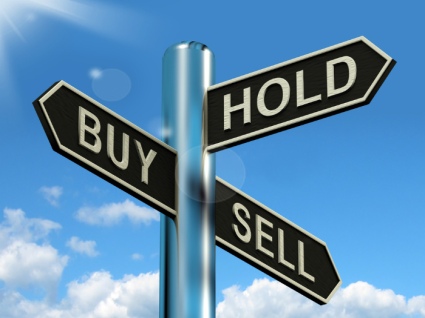As a human being it is easy to become emotionally invested in your business. After all the things you have sacrificed for it – kids’ soccer games, recitals, family gatherings, etc., it is understandable how this can happen. However, this investment should be treated like any other. If you consult your financial adviser, stock or bond trader, they will advise you that the best time to sell when the price is highest. In the case of selling a business, it is the same thing.
Unfortunately, as most entrepreneurs are natural risk takers, often they will continue to operate their businesses past the maturity stage and into the declining stage of its life cycle.
To demonstrate the premise of this article, let us examine two identical enterprises: Business A is in the maturity stage and Business B is in the declining stage.
In this comparison we shall assume that a buyer will be using a general multiple of EBITDA (Earnings Before Interest, Taxes, Depreciation and Amortization) of 2.5. Additionally, the buyer will weigh the last three years of each businesses financials as: the first year at 0.1, the second year at 0.35, and the most recent year at 0.55. To simplify this example, EBITDA will be 35% of revenues.
Business A: Maturity Stage
Say the last three years of your business’s revenues has been 20XX $875,000, 20XX $925,000, and this year is $1,000,000. Please see the table below for the calculations.
As the table illustrates, Business A would sell for $841,094. Now let us examine Business B.
Business B: Declining Stage
For this example we will use the same numbers above but reverse the annual revenues, as such the last three years of your business’s revenues has been 20XX $1,000,000, 20XX $925,000, and this year is $875,000. Please see the table below for the calculations.
To summarize the above table for Business B, this business would sell for $791,875. As you can see, both business earned the same revenues and had the same total value of EBITDA in the past three years. However, in this example, the buyer would be willing to pay almost $50,000 more for Business A than Business B.
While this example is very simplistic, I believe it illustrates the fact that the best time to sell any business is before it starts to decline. Unless of course you would rather not have an additional $50,000 to spend during your retirement.
As an entrepreneur it is hard to know when is the right time to sell your business. Ultimately you are the only one that can make that decision.
These articles are designed to provide some insight into various aspects that the marketplace takes into consideration, to help you with this decision. If you have any questions as to if this is the right time to sell your business, please contact a professional for a confidential consultation.
Please note that all of these articles utilize very simplistic examples to illustrate a small component to either preparing to sell, buy, and/or value a business. In no way are these examples intended to be used in isolation, or as being a ‘hard and fast’ rule for all businesses in every industry. I strongly recommend that each and every (potential) business owner consult a professional before buying and/or selling a business as each endeavour is unique.
Written by Jim Nairn
Jim Nairn is vice-president, Sunbelt Kingston, Brockville, Belleville, Trenton




